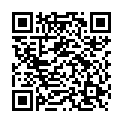|
|
|
| Module code: KI641 |
|
2V (2 hours per week) |
|
2 |
| Semester: 5 |
| Mandatory course: no |
Language of instruction:
German |
Assessment:
Written exam
[updated 20.03.2007]
|
KI641 Computer Science and Communication Systems, Bachelor, ASPO 01.10.2014
, semester 5, optional course
|
30 class hours (= 22.5 clock hours) over a 15-week period.
The total student study time is 60 hours (equivalent to 2 ECTS credits).
There are therefore 37.5 hours available for class preparation and follow-up work and exam preparation.
|
Recommended prerequisites (modules):
None.
|
Recommended as prerequisite for:
|
Module coordinator:
Prof. Dr. Helmut Folz |
Lecturer:
Prof. Dr. Helmut Folz
[updated 01.04.2003]
|
Learning outcomes:
This course aims to provide students with an overview of the most important core areas in modern requirements engineering. Planning games are used to teach both theoretical and practical aspects.
[updated 13.03.2007]
|
Module content:
1. Basic factors
2. Elicitation techniques
3. Requirement types
4. Types of documentation
5. Quality issues
6. Requirements management
7. Requirements and process models
8. Maturity models
9. Planning games
10. RE and RM support tools
[updated 13.03.2007]
|
Recommended or required reading:
RUPP C. et al., Requirements-Engineering und -Management, Hanser, 2004
HULL Elisabeth et al., Requirements Engineering, Springer, 2004
[updated 13.03.2007]
|
Module offered in:
WS 2005/06
|


